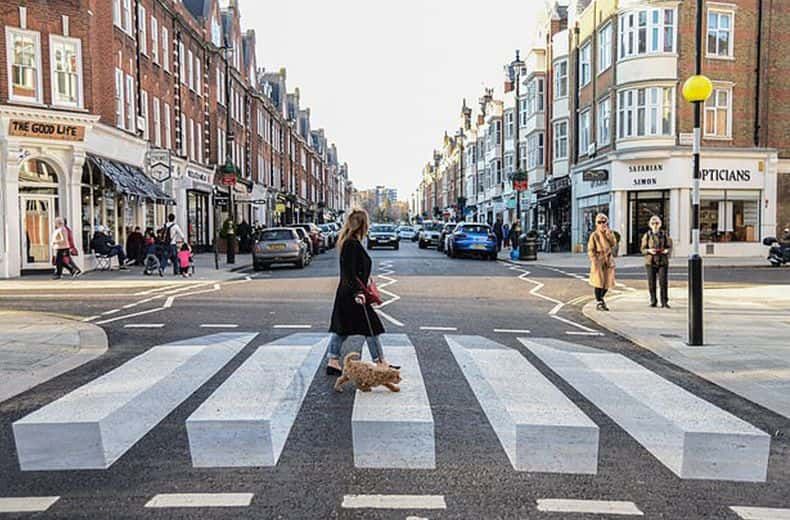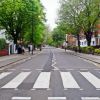The UK’s first optical illusion zebra crossing was introduced earlier this year on St. John’s Wood High Street in North London.
The crossing, created after concerns were raised about speeding motorists from local residents and a nearby school, is currently part of a 12-month trial by Westminster City Council.
Just eight weeks into the year-long trial the crossing appears to have had the desired effect, encouraging drivers to slow down significantly.

RAC sale – up to 33% off*
• Roadside cover from £5.29 a month†
• We get to most breakdowns in 60 mins or less
• Our patrols fix 4/5 breakdowns on the spot

The 3D-effect zebra crossing, which cost the local council an estimated £3,000, is just around the corner from the Abbey Road crossing made famous by the Beatles’ album cover.
The project follows on from similar optical illusion crossing schemes introduced in other countries as authorities across the world look for more imaginative ways to tackle speeding motorists.
In one pilot scheme in New Delhi, India, a similar crossing saw average speeds drop from 31mph to just 19mph.
Should the successes of the St. John’s Wood trial match these figures over the 12-month period, more and more towns across the UK could see optical illusions on their streets.
- Road crossings – what’s the difference between zebra, pelican, puffin, and toucan crossings?
- Speed limits in the UK: know the laws
A spokesman for Westminster City Council said that while the location wasn’t an accident blackspot many pedestrians had issues with speeding traffic.
“There were reports of children, elderly people and mums with pushchairs having difficulty crossing the road.”
Local councillor Tim Mitchell said: “We are delighted it appears to be working so well. Drivers are more cautious and feedback from locals has been positive. It’s really encouraging.”
Copyright Press Association 2019. Motoring News articles do not reflect the RAC's views unless clearly stated.






